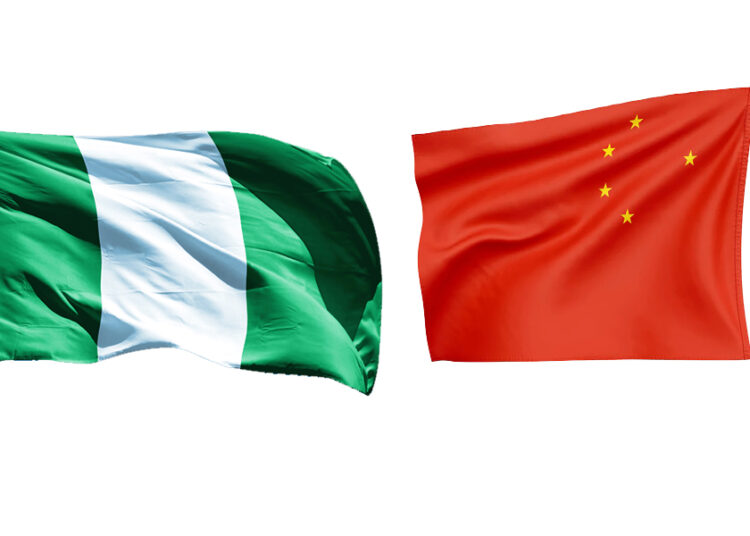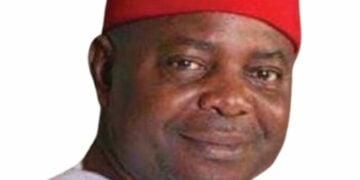When China’s Foreign Minister Wang Yi jetted into Abuja last week bearing gifts and promises, I couldn’t help but recall the old African proverb about the left hand washing the right.
The diplomatic dance between Nigeria and China is becoming more intricate, and the stakes have never been higher.
Let’s cut through the diplomatic speak and face reality. China isn’t expanding its currency swap agreement with Nigeria and backing our Panda bonds issuance out of mere brotherhood. This is calculated economic diplomacy at its finest. Beijing sees Nigeria as the gateway to West Africa, and they’re willing to pay the toll.
The current $2 billion currency swap deal, which President Bola Tinubu rightly described as “inadequate,” tells only part of the story. What’s fascinating is China’s swift response to consider an expansion. When was the last time you saw China responding this quickly to a financial request from an African nation? It speaks volumes about Nigeria’s strategic importance in China’s African agenda.
Remember the fanfare that accompanied the initial currency swap agreement? Some analysts hailed it as Nigeria’s economic game-changer. But here we are, still grappling with forex challenges and infrastructure deficits. The promised benefits of that deal are yet to fully materialise for the average Nigerian businessman trying to import goods from Guangzhou.
What’s particularly interesting about Wang Yi’s visit is the timing. It comes when Nigeria is actively seeking alternative funding sources for its ambitious infrastructure projects. China knows this, and they’re not about to let Western institutions gain a stronger foothold in Africa’s largest economy. It’s like watching a geopolitical chess match where Nigeria is both the player and the prize.
The pledge of $140 million in military aid and the promise to train 6,000 military personnel across Africa sounds impressive until you do the math. It’s pocket change compared to what China earns from African trade. Yet, we’re supposed to see this as a major commitment to African security. Talk about strategic investment on a shoestring budget!
I find it particularly intriguing that China is supporting Nigeria’s bid for a permanent United Nations (UN) Security Council seat. Don’t get me wrong – we absolutely deserve that seat. But China’s support comes with strings attached, whether we admit it or not. It’s no coincidence that this backing comes alongside discussions about currency swaps and infrastructure projects. Beijing’s diplomatic support always comes with a price tag.
The appointment of Joseph Tegbe as coordinator for Nigeria-China relations shows we’re taking this relationship seriously. But we need to be clear-eyed about what we’re getting into. China’s talk of opposing “power politics and bullyism” in Africa sounds great until you realise they’re essentially saying,
“Don’t let others bully you – let us protect you instead.” It’s like switching landlords and calling it independence.
What’s particularly noteworthy is China’s support for “Africans addressing African issues in the African way.” Sounds wonderful, doesn’t it? But this is coming from the same country that has voting rights in African development banks and significant control over numerous African infrastructure projects. The contradiction is glaring.
The proposed expansion of military cooperation deserves special scrutiny. Yes, we need all the help we can get in tackling our security challenges. But military aid often comes with hidden costs. Just ask any African country that has ever tried to balance military cooperation with maintaining strategic autonomy.
The details of these agreements often remain shrouded in secrecy.
Don’t get me wrong – Nigeria needs these partnerships. Our infrastructure deficit is real, and China’s willingness to fund major projects is a boost we can’t ignore. The railway modernisation project they’re so proud of? Let’s remember it’s not aid – it’s a loan we’ll be paying back with interest. Our children might still be paying for it long after the tracks need replacement.
President Tinubu’s request for an upward review of China’s $50 billion aid package for Africa was diplomatically astute. But here’s what keeps me up at night – are we walking into another debt trap?
Other African nations have already learned the hard way that Chinese loans can be a double-edged sword. Just ask our neighbours about their experiences with Chinese debt restructuring.
The truth is, in today’s multipolar world, Nigeria needs to play its cards right. We can’t afford to be naive about China’s intentions, nor can we ignore the opportunities this relationship presents. The key is to ensure that while China courts us, we maintain our sovereignty and strategic interests.
As Nigeria deepens its engagement with China, we must ask ourselves some crucial questions: Are we ready to ensure this partnership truly serves our national interests? Can we guarantee that today’s deals won’t become tomorrow’s burdens? Most importantly, do we have the institutional capacity to manage this relationship effectively?
The ball is in our court. Let’s hope we play it right, because in this game of international relations, there are no permanent friends, only permanent interests. And right now, China’s interests in Nigeria are crystal clear – the question is, are ours?





